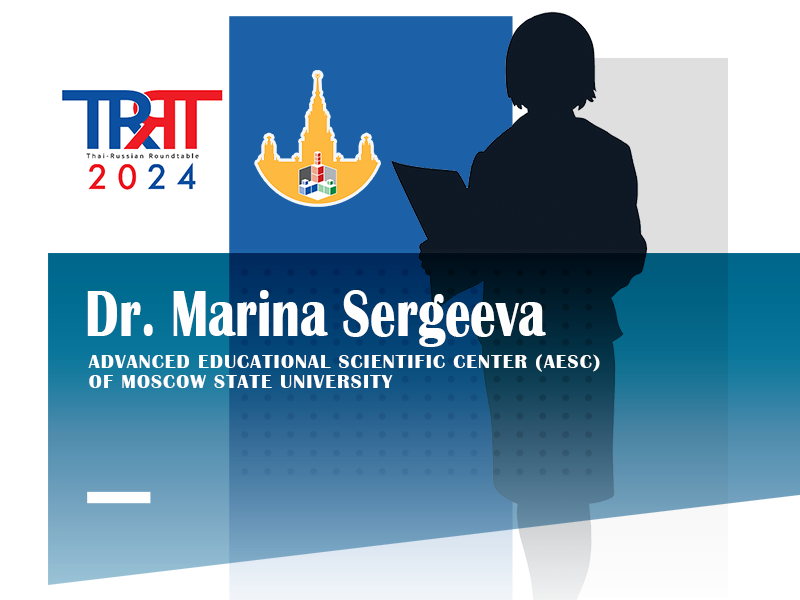Abstract TRRT 2024 Dr. Marina Sergeeva
Organization of Educational Space for Initial Training of Personnel for Bioinformatics, Bioengineering, and other High-Tech Biology Professions
Dr. Marina Sergeeva
Advanced Educational Scientific Center (AESC) of Moscow State University
Abstract
AESC of Moscow State University (Kolmogorov School) trains students for the last 2 years before entering the university. Natural science education involves their further study and work in the field of high-tech professions, such as bioinformatics and bioengineering. These professions require not only knowledge in biology, mathematics, chemistry and physics (hard skills), but also additional requirements for soft skills. In addition to the usual academic competencies, skills of continuous learning and a broad ontology of being (the area of familiarization with the world around us) are necessary. Students' ability to climb to high achievement is limited by their identity, which at the organizational level is linked to the tightness of organizational interconnectedness. Therefore, we discuss such concepts as educational landscapes, learning landscapes, personal knowledge landscapes. Landscape as part of the educational space. This emphasizes the complexity of the impact on a person. And it sets new tasks for the school to form an educational environment for the individual development of those students whose goal is to be effective in high-tech professions. The formation of the environment in which a student is brought up is influenced by parents, society through the mass-media, the university through its representatives, future employers who come to meetings, the Internet and the community of other students. An analysis is made of the influence of these different parts of the environment on the development of students and the challenges currently facing the school. Teachers play a special role. It is important that they, too, should be a community. Approaches to the formation of an educational space with a focus on the role of the school teachers’ community are discussed in the report.
Keywords: learning strategy, educational landscapes, learning landscapes




